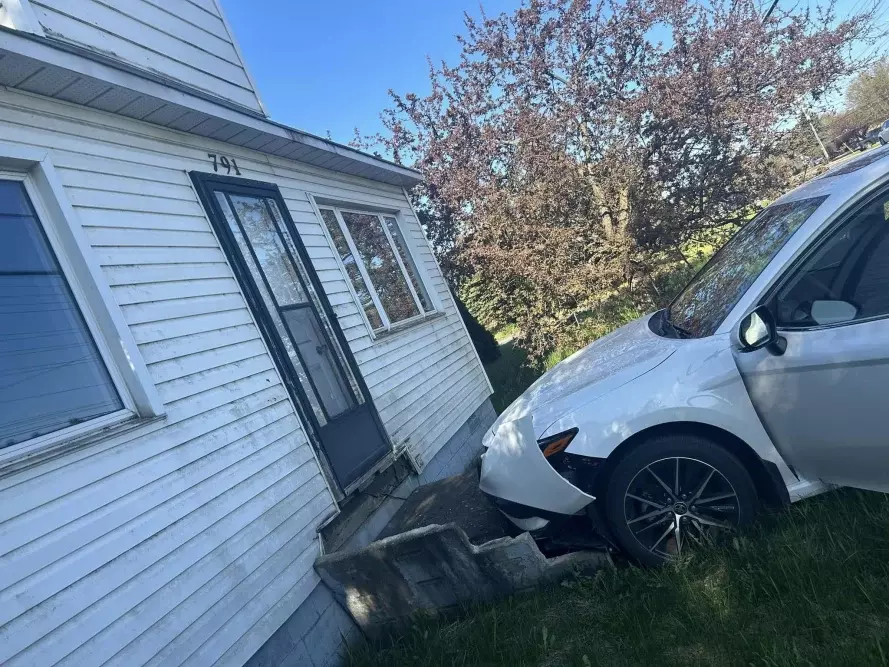City Council Monday night adopted staff’s Community Charging Infrastructure Plan (CCIP), which outlines objectives to ensuring the City’s readiness for wider electric vehicle use.
The plan, presented by Sustainability Coordinator Emily Cormier, has three primary objectives, the first of which is to increase the number of available charging stations in the City.
Currently, there are 13 such stations in the city. Most are located at motels and gas stations, said Cormier.
Identifying key areas for more stations and exploring available funding are key components of the first objective. Cormier says research is underway to determine high-priority areas for public charging infrastructure.
A second objective is education and advocacy. This involves the city partnering with local organizations to share EV information and best practices, staying on top of regulatory changes and advocating for policies
that support the transition to EVs.
A third objective, municipal leadership and governance, concerns the updating of city by-laws to include requirements for EV infrastructure, incorporating EV infrastructure into long-term planning and the budget, and creating a EV Charging Infrastructure Working group to oversee and the plan implementation with city staff and PUC Services.
The bottom line, is to prep for the future and drive down emissions. Not accounting for industry, transportation is largest contributor to emissions locally at 38 per cent.
In June, 2022, council passed a resolution calling for staff to develop the CCIP. It’s considered a major step toward the City’s longer-term goal of zero emissions by 2050.
The CCIP notes the upfront cost of EVs is 71 per cent higher than the sticker price for an Internal Combustion Engine vehicle. Studies show purchase price continues to be the biggest barrier for consumer interest in EVs.
The CCIP is “a living document” and is certain to evolve over time, Cormier told council. She says the City will look to tap into the Province’s ChargeON program which provides funding for the installation of public EV chargers in communities with a population of 170,000 or less. The program offers up to 50-75 per cent of capital funding through post-construction rebates.
Another likely target, currently closed but opening up again in the spring of this year, is the federal government program, ZEVIP (Zero Emission Vehicle Infrastructure Program) which provides funding for EV chargers and hydrogen refuelling stations at public locations across Canada.
EVs are not common in the Sault, but that’s expected to change. Ward 4 Councillor Stephan Kinach, the only member of council who drives an electric car, shared his EV experience and insights, including some of the costs associated with owning and operating his 2019 Ford Fusion Plug-in Hybrid.
Through the PUC’s EV Home Charging Program, Kinach says he pays $75 a month for an installed charger.
“It’s quite a big up front cost,” Kinach told council. “The PUC has this plan where you pay over five years. You pay like a rental and an insurance policy on the unit, If anything happens with the unit they come and replace it,After that, Kinach added, the monthly nick drops to $35 for rental and insurance of the charger.
Kinach says he can drive from May to October without a fill-up at the gas pumps. He pointed out that he gets 50 km on a full charge which takes about two hours on a fast charge, adding he charges the Fusion about three times a week.
That 50 km range drops 20 km in winter as much of the energy is used in defrosting the car. “I don’t see a big difference on my PUC bill monthly, with water and electricity,” said Kinach. “I didn’t notice a difference.”
A real positive said Kinach, is that he gets 1,000 km on a tank of gas for highway driving. The plug-in hybrid also saves him five per cent annually on his auto insurance.
Kinach asked if the grid is able to handle the anticipated rise in usage. Cormier replied the Ontario is going through a bulk system upgrade to accommodate EV use.
Kinach asked if the PUC residential program will continue. “The PUC residential program will continue and the PUC will continue to support the city is all our public charging also,” said Cormier.
Cormier will return to council Jan. 29 with an update on funding applications.







